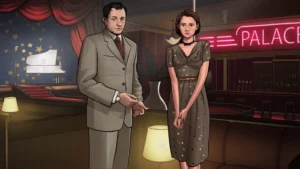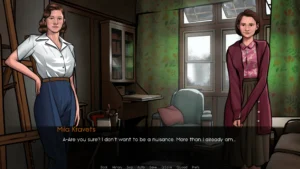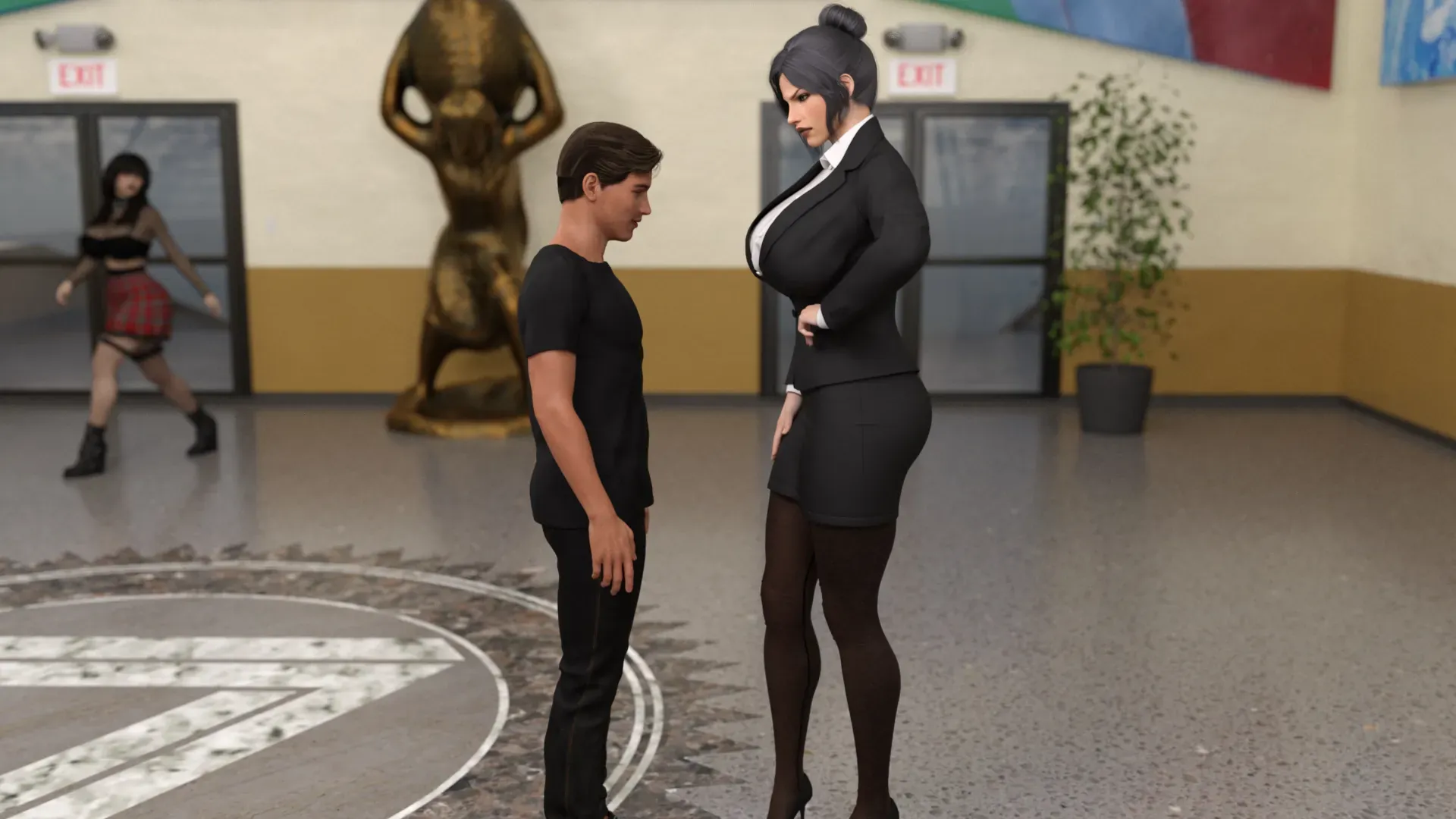
The Silver Lining
Play The Silver Lining
The Silver Lining review
How Storytelling Redefines Adult-Themed Interactive Experiences
When I first encountered The Silver Lining during a late-night gaming session, its unexpected emotional complexity challenged my assumptions about story-driven adult titles. Unlike typical entries in this niche, the game combines intricate character relationships with meaningful player choices that impact both romantic subplots and core narrative outcomes. This deep dive explores how its developers crafted a mature experience that prioritizes emotional resonance over sensationalism.
Gameplay Mechanics and Player Agency
Branching Dialogue Systems That Matter
Ever picked a random dialogue option just to see what happens? 😅 We’ve all done it—until The Silver Lining slaps you with consequences six hours later because you joked about a character’s dead pet lizard. This isn’t your grandma’s “choose nice/mean/sarcastic” system. Adult game mechanics here mean every flippant remark or heartfelt confession tangles the story’s threads in ways you can’t untangle.
Take the three-click conversation system: you get three responses, but only one truly progresses the story. The other two? They’re traps. 🕷️ Pick the wrong one, and you might accidentally side with a faction you hate or burn a bridge with a key ally. For example, early in the game, choosing to defend a smuggler instead of turning them in unlocks a black market storyline—but locks you out of the “lawful good” ending.
What makes these narrative branching paths brutal (and brilliant) is their subtlety. You won’t see a “WARNING: THIS CHOICE WILL DESTROY YOUR LIFE” pop-up. It’s more like planting a landmine and forgetting where you left it. 💣
Relationship Dynamics as Progression Tools
Let’s talk about the Trust Matrix—a mechanic so sneaky, it’s like your therapist keeping tabs on your emotional availability. 👀 Every interaction with characters feeds into this invisible web of rapport. Help your partner cover up a crime? +10 “Ride-or-Die” points. Snitch on them? -20 “Loyalty,” and good luck getting backup in the final heist.
This isn’t just about romance options (though yes, there’s plenty of steamy relationship progression gameplay). It’s about survival. In one playthrough, I ignored a side character’s plea for help, assuming they were irrelevant. Big mistake. Turns out, they controlled access to a safehouse later. Cue me scrambling through a zombie-infested sewer because I couldn’t call in that favor. 🧟♂️
The genius here? Relationships aren’t checkboxes. They’re living ecosystems. Even small gestures—like sharing supplies or lying to protect someone—ripple through the player consequence system, reshaping alliances and enemies.
Pro tip: Treat every NPC like they’ve got a vendetta and a YouTube following. You’ll sleep better.
Ethical Choice Architecture
Ah, the morality system that hates save-scummers. 🙅♂️ The Silver Lining doesn’t just punish bad decisions—it bakes them into the story. Steal medicine for a sick kid? The clinic you robbed collapses, and later, you’ll meet orphans scavenging in the ruins. Try to reload your save? Nope. Decisions are locked after triggering cutscenes, forcing you to live with the mess you made.
This mature choice design forces players to think, not trial-and-error their way to a “perfect” ending. Early-game choices, like sparing a rival gang leader or executing them, create wildly different endgame scenarios:
| Early Choice | Mid-Game Impact | Late-Game Consequence |
|---|---|---|
| Spare the leader | Gang becomes allies | They betray you during the finale |
| Execute the leader | Gang splinters into factions | Chaos disrupts supply routes |
The lesson? There are no “right” answers, only shades of disaster. And that’s the point. By refusing to let players redo choices, the game mirrors real-life accountability—minus the actual jail time. 🚔
Why This All Works
Adult game mechanics thrive on discomfort. They ask: What if your choices mattered? Not just for loot or endings, but for the soul of the story. Narrative branching paths aren’t about quantity—they’re about quality. A single dialogue misstep can gut a subplot, while a well-timed lie can rewrite alliances.
And that’s The Silver Lining’s secret sauce: it treats players like adults. No hand-holding, no take-backsies. Just raw, unfiltered relationship progression gameplay where every beer shared and bullet dodged writes a story you can’t undo. 🍻
So next time you’re faced with a three-click conversation, ask yourself: Am I ready to live with this? Because in this game, regret is the ultimate boss battle. 😉
Through its innovative blend of meaningful choice architecture and artistic subtlety, The Silver Lining demonstrates how adult games can deliver substantive narratives without relying on shock value. For developers and players alike, it serves as a compelling case study in emotional storytelling within mature frameworks. Ready to experience this nuanced approach firsthand? The game’s free demo offers a taste of its first major story arc.









